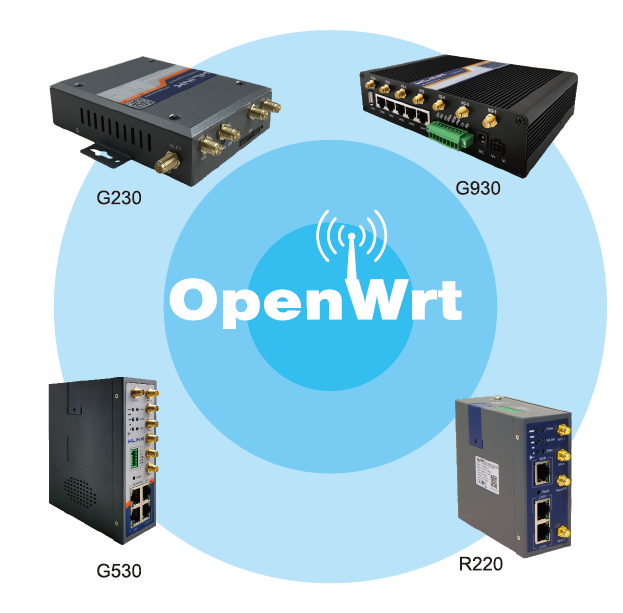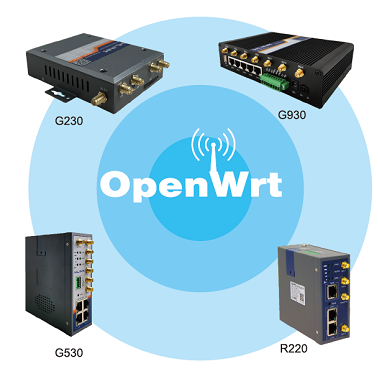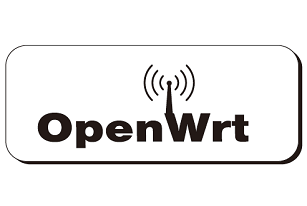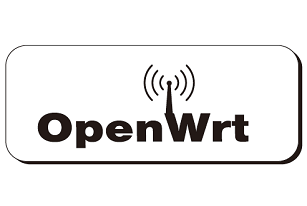
HOME > PRODUCTS > Router with OpenWrt > 5G/4G Router with OpenWrt
5G/4G Router with OpenWrt
- Overview
- Specification
- Order Model
- Documentation
What is OpenWrt? OpenWrt is a Linux-based open-source firmware for routers and other embedded devices. It's designed to be flexible, lightweight, and configurable, and provides a lot of features that you wouldn't otherwise find on a typical router firmware. |
|
Why use OpenWrt? There are many reasons why you might want to use OpenWrt on your router. One of the main benefits is that it gives you more control over your router's settings and allows you to customize it to better suit your needs. For example, you can use OpenWrt to install custom software packages, set up VPNs or configure advanced routing options. Another benefit of OpenWrt is that it's secure enough. The open-source nature of the software means that it's regularly audited by a community of Linux security experts, which can help to identify and fix any vulnerabilities. Finally, OpenWrt is also very lightweight and efficient, which means that it can run on older or less powerful hardware. This can be especially useful if you have an older router that you want to keep using. Overall, if you're looking for a more customizable, secure, and efficient router firmware, then OpenWrt is a great option to consider. |
 |
What can OpenWrt do? As a distribution of Router, it offers a built-in packages manager that allows you to install package from a software repository. It can be used for anything that an embedded Linux system can be used for, including functioning as an SSH server, VPN, traffic shaping system and so on. | ||
| Common Plugins and Features of OpenWrt | |||
• Luci • SQM • Unbound • Samba • MiniDLNA | • Adblock • WireGuard • OpenVPN • FTP/SFTP • FTP/SFTP | ||
Available OpenWrt cellular router from WLINK The optional router including R220/G230/G530/G930 series are compatible with OpenWrt trunk systems, which is configured using a web interface (LuCI). Customers can be allowed to customize Wlink OpenWrt router to fit any application from the selection and configuration by WLINK provided. They are suitable for users who want a drop-in replacement firmware. (OpenWrt isn’t the ideal solution for everyone. Most people will be happy with WLINK router’s default firmware.) |
Router Comparison
| Specfication | G930 | G530 | G230 | R220 |
System Firmware | WLINK OS/OpenWrt OS | WLINK OS/OpenWrt OS | WLINK OS/OpenWrt OS | OpenWrt OS |
| Mobile Network | 5G SA/NSA | 5G SA/NSA 4G Cat4/6/12/20 3G 2G | 5G SA/NSA 4G Cat4/6/12/20 3G 2G | 4G Cat4/6 3G 2G |
CPU(MHz) | Dual-core 880 | Dual-core 880 | Dual-core 880 | 580 |
RAM (MB) | DDR3 512 | DDR3 512 | DDR3 512 | DDR2 64 |
Flash memory (MB) | 32 | 32 | 32 | 16 |
Expandable Storage | 8G to 256GB | 8G to 256GB | / | 8GB |
Passive PoE | ✓ | ✓ | ✓ | ✓ |
Avtive PoE | - | Optional | - | - |
Ethernet Speed | 1000M | 1000M | 1000M | 10/100M |
| Interface | 5x GbE | 4x GbE 4x I/O 1x RS232 1x RS485 | 2x GbE 1x RS232 | 2x LAN 3x I/O 1x RS232 |
SIM Slot | Two | Two | One | Two |
| WiFi | 802.11 b/g/n | 802.11 b/g/n 802.11 a/c | 802.11 b/g/n 802.11 a/c | 802.11 b/g/n |
| 1.2Gbps | 583Mbps | 583Mbps | 300Mbps | |
GNSS | Optional | Optional | Optional | Optional |
Dimension (mm) | 179 x 124 x 43 | 132 x 112 x 44 | 103 x 73.5 x 25.5 | 102 x 100 x 42 |
Unit Weight | 610g | 400g | 320g | 350g |
| Mount Type | Desktop | Desktop Wall Mount DIN Rail Mount | Desktop Wall Mount DIN Rail Mount | Desktop Wall Mount DIN Rail Mount |
Power Supply | 7.5V - 32 VDC | 7.5V - 32 VDC | 7.5V - 32 VDC | 7.5V - 32 VDC |















